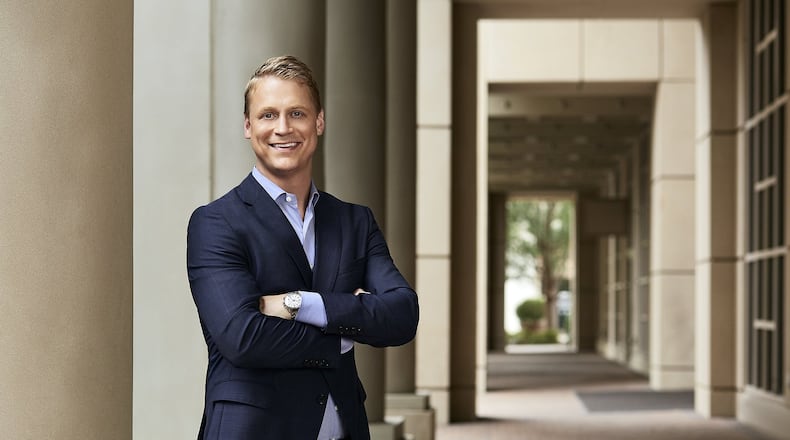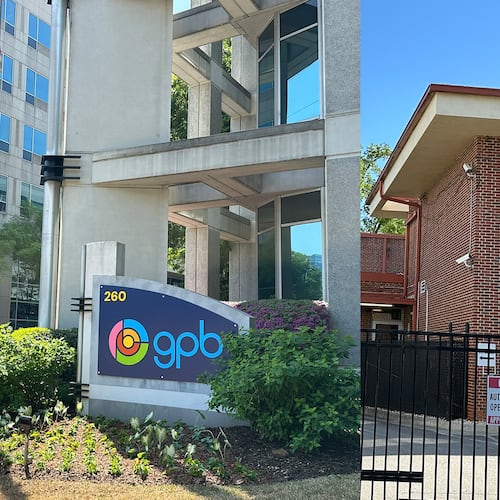There’s one movie ticket stub I’ve held onto for the last 15 years. I keep it in the same little wooden box that holds my wedding ring — The Pursuit of Happyness — the biographical film starring Will Smith as Chris Gardner, a salesman who went from homelessness to eventual success as a financial adviser, all while caring for his kindergarten-aged son (although in real life, Chris’ child was a toddler during that time).
I’ve got four young sons, so the story resonated. When I catch myself feeling self-pity about the lackluster performance of a stock, I remember Chris’ journey.
German philosopher Friedrich Nietzsche wrote that if you gaze long enough into an abyss, the abyss gazes back into you. Chris gazed into that abyss and never blinked. I recently sat down with him for an episode of my Retire Sooner podcast and was reminded all over again what it feels like to be inspired.
His story changed my life. It drove me to conduct national studies about consumer habits and to explore what makes someone a happy retiree. He told me that the most important choice he made was to give himself permission to dream.
“I was going to become world-class at whatever I did with my life. Not good at it. Not pretty good at it. World-class.” According to Chris, the greatest export in the history of the United States isn’t manufacturing or technology or hamburgers. It’s the American Dream — the idea that you can do or be anything. He spreads this message at speaking events all over the country and he’s noticed a trend. Whether he’s in Vicksburg, Massachusetts, speaking to a rural, wealthy audience or in Atlanta, Georgia, speaking to working-class city folks, he seems to get the same question: Is the American Dream still possible?
People working today have seen a global financial crisis. They’ve seen a global pandemic turn small businesses into boarded-up buildings. Millions became unemployed overnight. It’s no wonder they feel uncertain about the future. But when life is full of darkness, Chris says, the trick is to find that one ray of light and focus on that. There is power in having the ability to make that choice.
When Chris was homeless in San Francisco, he found refuge at the airport. “There’s nothing unusual about seeing a man, a baby, and a whole bunch of bags. It’s an airport!” He laughs about it now. But it’s that spirit that helped propel him. He knew life had more in store, but he didn’t sit by the phone and wait for Will Smith to call. He created his own path and eventually the phone rang.
Chris wears two watches. One is expensive but the other is priceless because it belonged to the love of his life and gave birth to “Atomic Time” — the idea that life is short and it’s up to us to decide what we want to do with the time remaining.
In 2012, Chris lost his soul mate, Holly, to brain cancer. She was only 55. As the tumor affected optic nerves it severely diminished her vision. One Christmas morning, she opened a gift watch from Chris. “Wow, this has Atomic Time,” she said. Confused, he eventually realized she was misreading “Automatic Time.” After they laughed, the idea of Atomic Time was born. It’s such a perfect message for people on the fence about retirement. The clock is ticking but it’s never too late — or too early.
Chris says the future looks bright. “We are about to see the biggest comeback in the history of comebacks. I’m talking about the United States of America. This is going to be bigger than Rocky Balboa.” If Rocky Balboa can outbox Mr. T, then Americans can turn this thing around.
Chris reflected on some wisdom his friend Maya Angelou had imparted to him in their last conversation. “I will never forget her saying to me that … there were people who came before us who came up a steeper side of this mountain, carrying a bigger to heavier load with little to no opportunity, but they kept going forward, onward, and upward. And still, I rise.”
That is the American Dream.
Chris admits dreams aren’t easy to achieve. “A dream without a plan is worthless. A dream with a plan is priceless.” That said, not all plans are created equal. Chris thinks we all have a Plan A — the thing we’re truly passionate about. He says go for Plan A because “Plan B sucks.”
Chris says every Plan A has something he calls the “C5 Complex.” They must be Clear, Concise, Compelling, Consistent, and Committed. “There’s a guy named Michael Jordan. He’s got six NBA Championship rings because he was committed to Plan A, not Plan B. Oprah Winfrey became the Queen of All Media because she was committed to Plan A, not Plan B.”
Plan B, which is typically an uninspiring job or an unhealthy relationship, distracts and detracts from Plan A. This is very much in line with what I’ve found working with happy retirees for the past 20 years. They know how insidious Plan B is.
And yes, while our watches are set to Atomic Time, Chris reminded me that Colonel Harland Sanders didn’t franchise his first Kentucky Fried Chicken until he was 62 years old. Initiate your Plan A on the day you think of it. If you didn’t do that, initiate it today.
Chris is so pumped about his “retirement” that he won’t even call it by that name. “Maybe we need to stop using that word. Retire? No, dude, we’re transitioning. I’m 67 years old. I am a 67-year-old startup.”
Today, Chris focuses most of his energy on volunteering and giving back to the community. “I’m trying to create the next Chris Gardners. When a young person comes up to me and says, ‘I want to do something that I love, I’m committed to becoming world-class at it, and I want to work for myself,’ to that young person I can say, ‘I’ve done that. I can help you with that.’”
Chris doesn’t care how bad the odds might be when it comes to pulling off the kind of turnaround he saw in his life. “I don’t know the answer on the odds because I’m only focused on the evens. As in even though, even if, even when, even where, even you, even me.”
I use Chris’ words as daily vitamin doses of inspiration. No matter how much success I achieve, I still have difficult moments. We all do. But as he so rightly points out, the future is bright and America has a deep bench.
If you’d like to listen to this interview, you can find it at WesMoss.com or by searching “Retire Sooner” on your favorite podcasting app.
Wes Moss is the host of the podcast “Retire Sooner with Wes Moss,” found in the podcast app right on your smartphone. He has been the host of “Money Matters” on News 95.5 and AM 750 WSB in Atlanta for more than 10 years now, and he does a live show from 9-11 a.m. Sundays. He is the chief investment strategist for Atlanta-based Capital Investment Advisors. For more information, go to wesmoss.com.
DISCLOSURE: This information is provided to you as a resource for informational purposes only and is not to be viewed as investment advice or recommendations. This information is being presented without consideration of the investment objectives, risk tolerance, or financial circumstances of any specific investor and might not be suitable for all investors. This information is not intended to, and should not, form a primary basis for any investment decision that you may make. Always consult your own legal, tax, or investment adviser before making any investment/tax/estate/financial planning considerations or decisions.
About the Author
Keep Reading
The Latest
Featured



